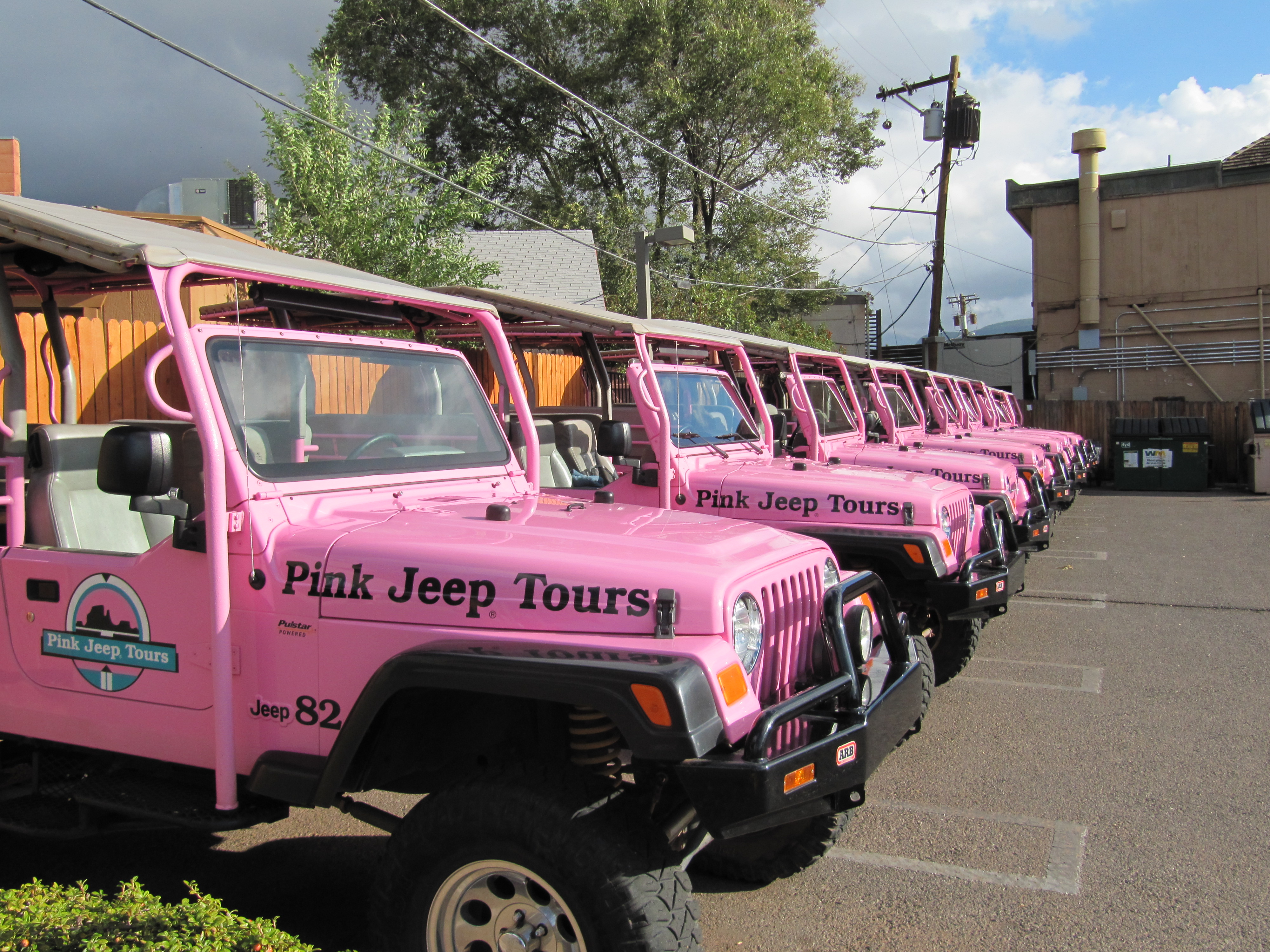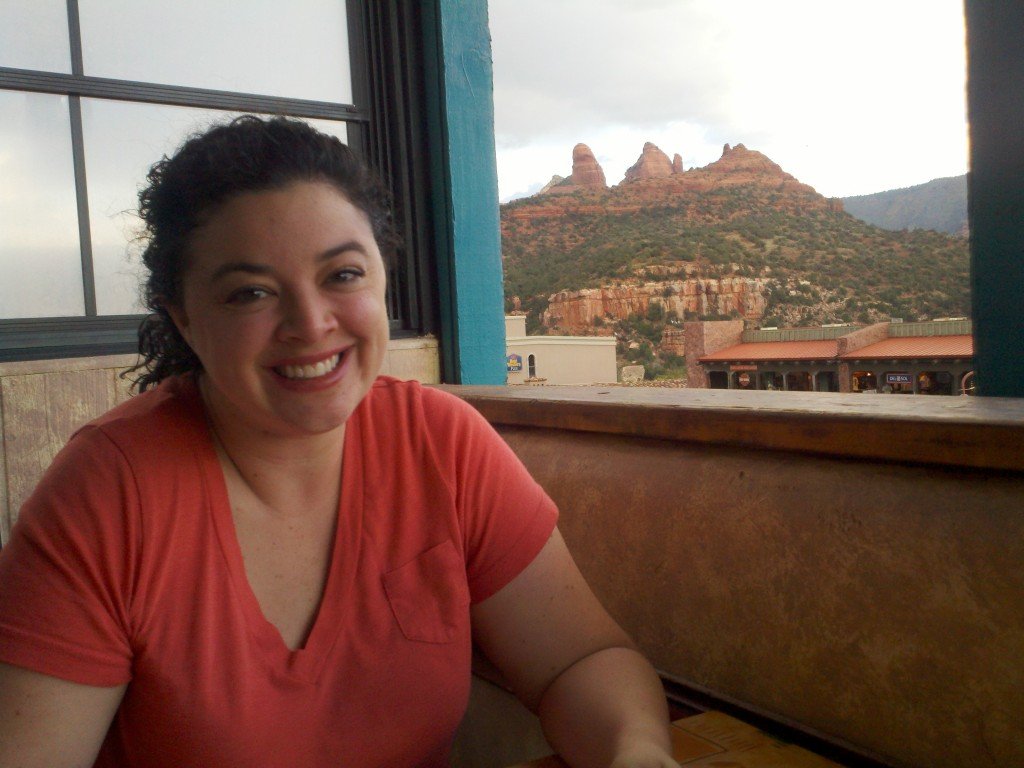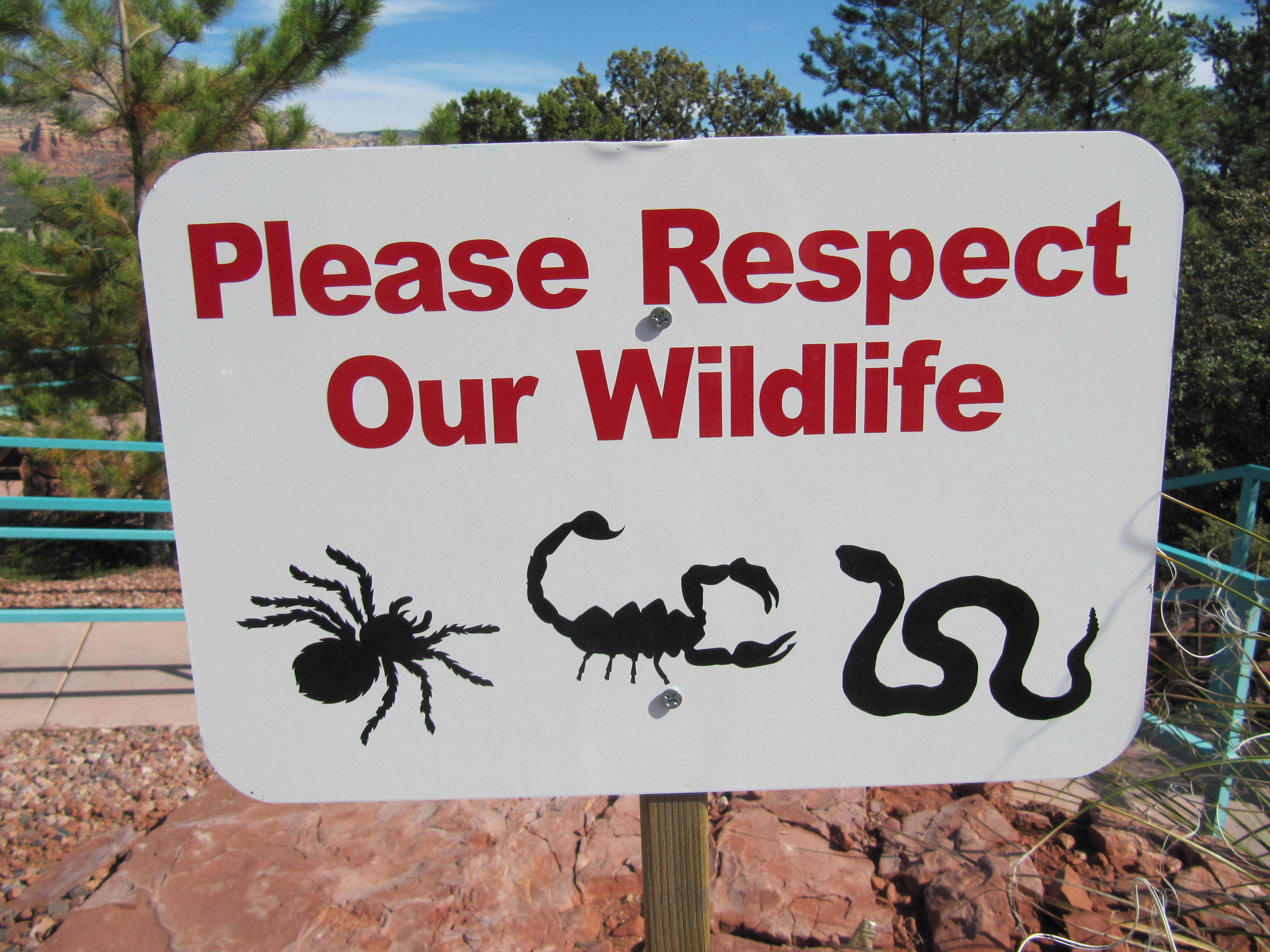We woke up early this morning to head over to the Pink Jeep Tour. The tour was fantastic and we had a lot of fun. As you can see we were taken to some beautiful vista points. Christina even walked right into a cactus. I would have had pictures of it but the guide was pulling the spines out of her leg. She said she didn't even feel it but a few minutes later she...
Another Panorama From Today
Sedona Panorama From Today’s Jeep Tour
Christina Before The Rain Came In
Honeymoon Day 4: Sedona Rainbow
We were having a nice Mexican food dinner last night when the rain clouds came in and a nice rainbow appeared.
Honeymoon Day 3
For day three we went over to Jerome, AZ for a haunted hamburger. Jerome is a really great tourist stop at 5,000 ft above sea level and I could really feel it walking around town. We then went over to a ghost town a few miles from Jerome and then back to Sedona in their "uptown" area for some shopping (or at least some looking).





